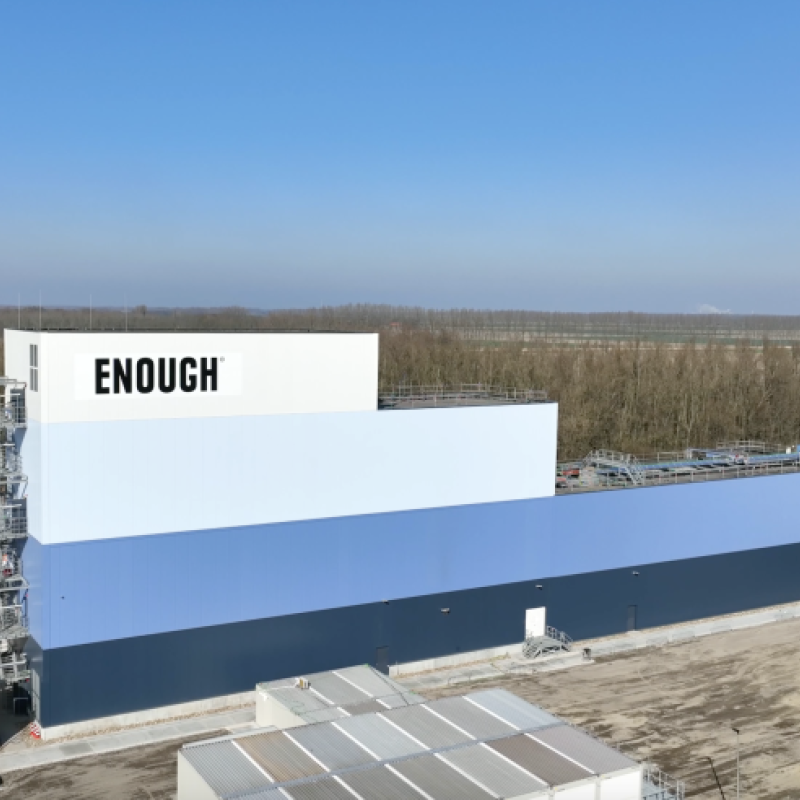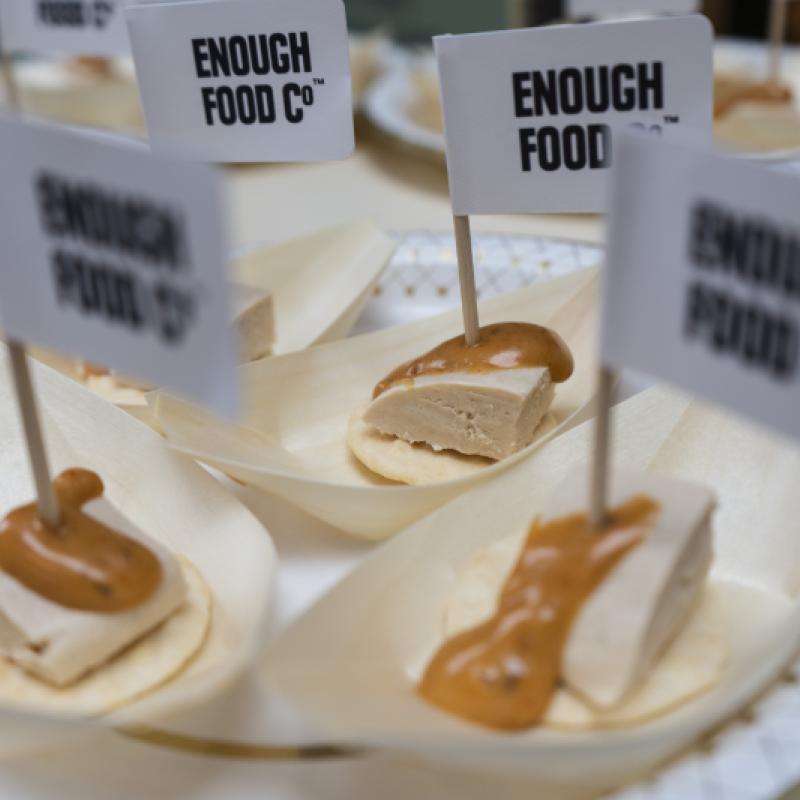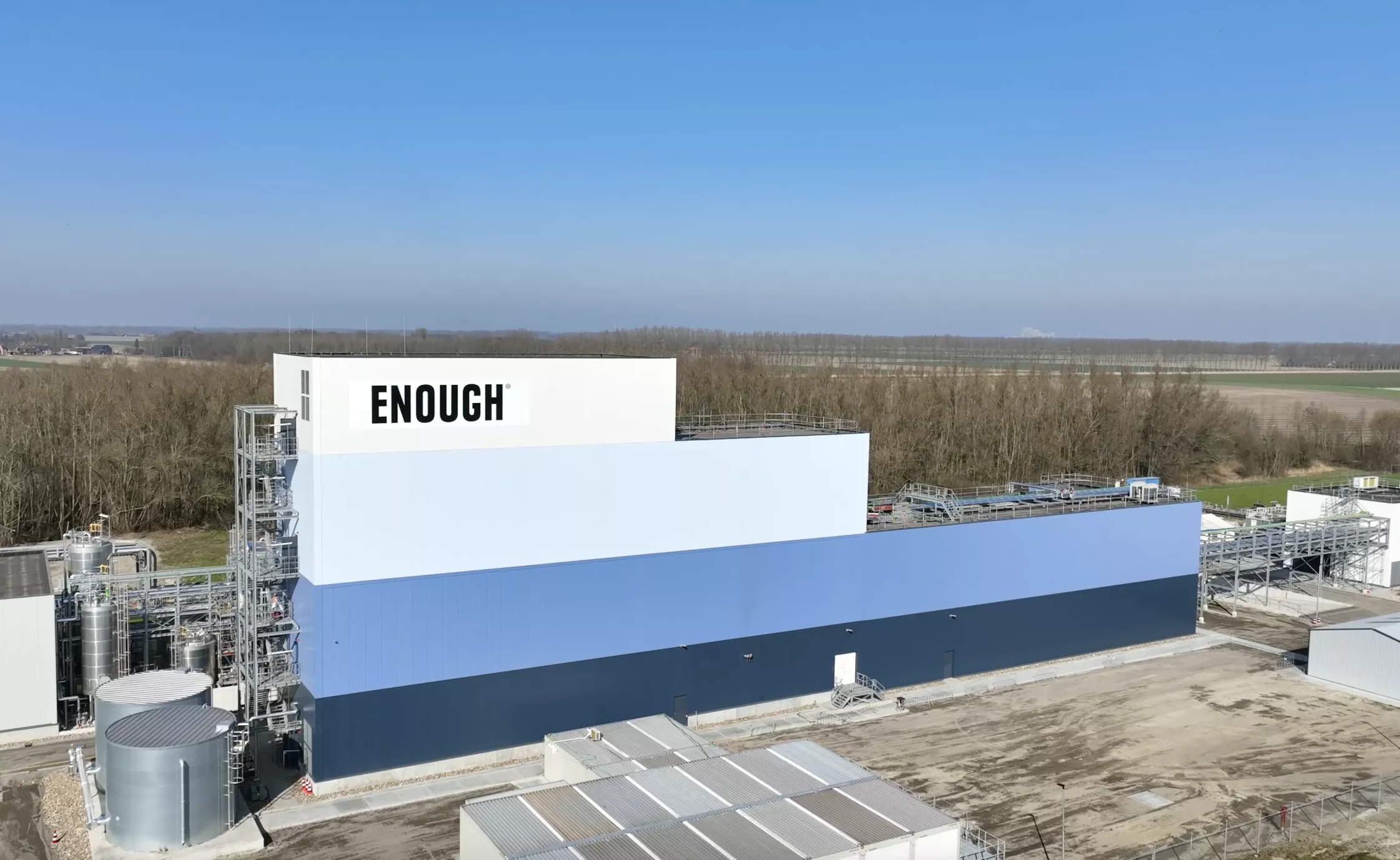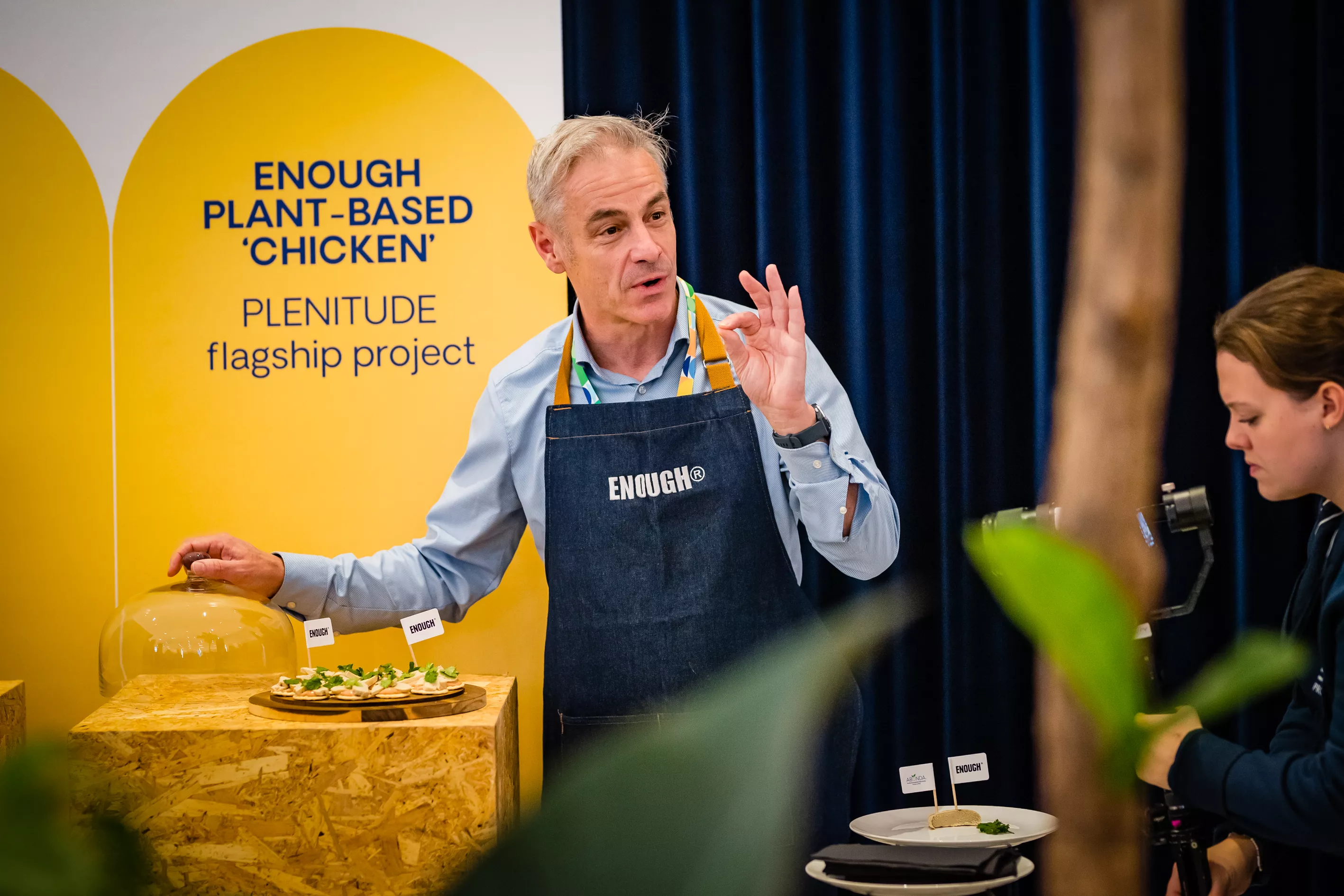Annual production at the plant, which opened in 2022, is expected to reach 60,000 tonnes within 5 years, with a target of 1 million tonnes set for 2032. If this is achieved, the impact will be equivalent to replacing 5 million cows and over 1.2 billion chickens. The production of ABUNDA will also cut CO2 emissions by 5 million tonnes a year compared with the production of meat proteins. The plant has created 35 direct and 150 indirect jobs, including for process and maintenance engineers and laboratory technicians.
‘We’ve constructed the ABUNDA manufacturing plant in Sas van Gent, in the Netherlands, in record time, and it’s now operational’, said PLENITUDE coordinator and co-founder of the plant operator, ENOUGH, Craig Johnston. ‘We will ramp up the development of a wide range of consumer products with the consortium partners using ABUNDA, including meat analogues to create a sustainable protein future.’
We will ramp up the development of a wide range of consumer products to create a sustainable protein future.
PLENITUDE coordinator and co-founder of the plant operator, ENOUGH, Craig Johnston
A nutritious ingredient
Made from fungi, mycoproteins contain all nine essential amino acids and are an excellent source of fibre and minerals such as iron and zinc. Moreover, ABUNDA is low in saturated fat and salt and contains no cholesterol.
The Sas van Gent plant uses glucose from sustainable cereal crops as feedstock for fermentation to grow the mycoprotein. Along with its meaty texture, studies show that ABUNDA has a pleasant aroma and a relatively bland taste, which is crucial for plant-based meat substitutes. ABUNDA has already been used in products such as ‘chicken’ fillets, meat-free burgers, and ‘shawarma kebabs’.
The core technology demonstrated within the CBE JU-funded project is based on an integrated zero-waste process in which the main waste stream from the mycoprotein fermentation is transferred to the biorefinery, where it is converted into bioethanol for fuel. In fact, alongside the protein production plant, project partner Cargill has a biorefinery to produce bioethanol.
The partners have assessed the environmental, economic, health, and social impacts of the PLENITUDE products and processes. Preliminary findings of the analysis of the resource usage of the technology suggest that ABUNDA has a significantly smaller environmental footprint than animal proteins. Its production uses 97% less feed and 93% less water than beef and 80% less feed and 55% less water than chicken.
Rising demand
Annual global consumption of meat and meat-analogue protein is around 500 million tonnes, less than 1% of which comes from non-animal sources. Demand for non-animal proteins could reach 10-20% of total protein demand by 2050, requiring the production of an additional 100-200 million tonnes of plant-based protein a year.
PLENITUDE brings together 10 key bioeconomy players from five EU countries and every link in the value chain. This includes primary processing and industrial operations, biotechnology, product development and applications, primary research and protein expertise, marketing and sustainability consultancy, and end users from the food and bio-based plastics sectors. Their collaboration will help to meet the need for plant-based proteins.











